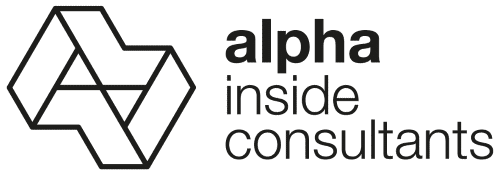The state of Rhineland-Palatinate is investing around 43.5 million in the new laboratory and office building for nuclear chemistry with the TRIGA Mainz research reactor at the Johannes Gutenberg University Mainz (JGU). After 16 months of construction, the topping-out was celebrated in November. In the two-storey research and teaching building for more than 100 scientists, highly technical laboratories for working with radioactive isotopes, measuring and evaluation rooms, workshops, seminar rooms and offices as well as an underground connecting tunnel to the research reactor are being built on approximately 2,000 m². We are pleased to take the milestone of the project as an opportunity to talk to the project manager of Alpha IC GmbH, Mr Daniel Genzler:
1. Daniel, what is Alpha IC's role in the JGU project and when did you start the initial work?
Our company is responsible for the commissioning management of the new nuclear chemistry building as part of the real estate of the Johannes Gutenberg University in Mainz. The required services are strongly linked to the AHO booklet no. 19 and to VDI 6039. We began in March 2017 with the start of the planning services for HU-Bau (budget document Bau) and thus with the start of service phase 3 according to HOAI.
2.
On the subject of IBM, one could assume that you are only asked shortly
before completion?
Why is it so important to be on board from an early
performance phase?
Many clients assume this. It is true that the commissioning phase describes the period from mechanical construction completion to operation. However, this must be prepared over the entire project duration and planned at an early stage. Therefore, I recommend commissioning at the latest when the design planning is handed over to the client. Consequently, we are very happy to be on board so early in this construction project.
Through our work, the overall process for the well-organised commissioning of a property is firmly anchored in the project. The design team as well as the executing trades can orientate themselves on this. On this basis, (special) services for those involved can be described and contractually agreed. Subsequent supplements and thus additional costs for the client are thus minimised. As a rule, the results flow into all planning phases. The focus here is on project management services in order to solve the many impasses during the construction implementation phase and thus to be able to hand over a functioning building to the future user.
An example of this is the provision of VOB-compliant tender text modules that address the involvement of the contractors during commissioning and thus ensure calculability and budget security. If the IBM is not commissioned until service phase 8, then only reacting instead of proactive planning would be possible. And this is usually accompanied by time delays and cost increases.
3. When will the "hot" realisation phase of the IBM begin for you and the team after the topping-out ceremony?
If you mean the "hot phase" as a period for local acceptance, trial operation, performance measurements and system parameterisation, then this will begin at the end of 2022 and continue until November 2023. Due to our many years of experience, we have acquired a great deal of autonomy, which is also necessary in order to maintain an overview in the very eventful final phase and to have a calming and moderating effect on the parties involved.
In this hot phase, more on-site meetings are required. The need increases from once a month to up to five days a week and thus represents the highest resource requirement in the project process.
4. What are the advantages of a cross-trade trial run?
In traditional construction projects, individual trade inspections are usually carried out by the specialist construction managers. The process is organised in a lean way and many things (e.g. performance measurement of technical systems) are only verified by the installation companies but not accompanied by quality assurance. And this is exactly where Alpha IC comes in. As a control tool, a so-called trade relationship matrix is created and firmly anchored in the project. This describes the dependencies of different technical trades on each other. It is only logical that, for example, a ventilation system (KG 430) cannot function without electrical energy (KG 440) or the necessary control/regulation (KG 480), and thus neither functions nor qualities can be tested in detail. It becomes more complex in particular when fire protection requirements and evacuation plans come into play. Here, among other things, the structural engineering trades of KG 300 according to DIN 276 must also be included.
Our job is to coordinate all the different trades and thus ensure functional interdependencies. The great advantage for the building owner is that he can usually find out about a large number of deficiencies in the function of installations at an early stage thanks to this procedure. In this way, we enable the weak points to be remedied in good time and not to be shifted into the utilisation and operating phase of the building.
The feedback from our customers is very positive throughout. This is because with the help of the cross-trade functional tests that we have established and with the implementation of a higher-level trial operation, functional defects can be detected in the first place before acceptance. In this way, the elimination of these deficiencies can be demanded more strictly by the specialised companies than if they are only reminded during operation, i.e. after acceptance. This, of course, also increases user satisfaction.
The state of Rhineland-Palatinate is investing around 43.5 million euros in the new laboratory and office building for nuclear chemistry with the TRIGA research reactor in Mainz; what do you think is special about this project and the IBM?
The technical complexity combined with the technical project management and thus the responsibility to harmonise the interaction of all technical systems with the building is what makes it so special for me.
The procurement of public building projects is often very complex. In the case of the JGU, too, the procurement of services from installation companies had to be in accordance with contract law. It is obvious that it is not sufficient to formulate a lump-sum price item in a bill of quantities. It is much more important to specify the service contents in detail, for example with concrete information on deadlines, activities and documentation.
Our "new role" as commissioning manager in the interaction with those involved must be established in such a way that no one shirks their responsibility. This is because we do not replace previous roles, but rather we effectively complement the classic services.
Moreover, no two plant installations are alike, and thus there is no blueprint or repetition effect. All of this is what makes IBM so appealing. I am happy to be part of this well-coordinated team and to be able to actively contribute to the success of the project.
Thank you, Daniel, for the interview. We look forward to hearing about your experiences after the completion of the new "Nuclear Chemistry" building at JGU in 2023.
Your contact persons at Alpha IC:
Daniel Genzler, Senior Project Manager Alpha IC
Tel. +49 151 422 294 18 ∙ d.genzler@alpha-ic.com
- B. Eng. Energy and Building Technology·
- B. A. Business Economics

-1640171960.jpg)



